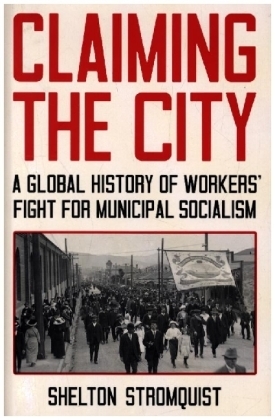Milwaukee’s Social Democratic Party in April 1910 stunned the nation and the world by electing a mayor, twenty-one of thirty-six aldermen, and eleven of sixteen county supervisors. Also impressive were the election of Victor Berger to Congress and thirteen socialists to the state legislature the following November. Both pragmatic and visionary, the Milwaukee Social Democrats worked for urban home rule and immediate, tangible reforms, but they also spoke of “the cooperative commonwealth as a guiding star” of their reform program. Mayor-elect Emil Seidel mocked the inefficiencies of capitalism and advocated an expanded public sector. “See how easily we get along when the idea of profit is absent,” he observed. The Social Democratic Herald carried a regular column, entitled “Seidelberg,” on the socialists’ work in the Common Council. They proposed an expanded public sector and largely succeeded in accomplishing it: municipal ownership of streetcars and other city services, a city-owned terminal station, municipal baths, markets, and cold-storage plants, a public garbage disposal plant, a municipal ice plant, public works employment for the unemployed, free medical dispensaries and hospitals, an expanded system of parks and swimming pools, free textbooks, and the opening of schools as community social centers. Having been burnt by the advent of at-large elections in previous cycles, the socialists continued to oppose at-large elections, short ballots, and commission forms of government. Berger in 1911 offered a devastating critique of the political reforms offered by many progressives. Such reforms, he argued, “confuse the minds of the workers regarding the fundamental issue of today—the class struggle between the workers and owners. It tends to make workmen look to ‘good men’ and to reformed methods of election for relief, instead of working for a change of economic conditions.” Speaking as a good machine politician, even if a socialist, he astutely observed that political reforms were “not good mechanical devices for a democracy, for they limit the power of the people and tend to the establishment of an oligarchy.”
In a pattern all too common in other cities, where competing parties temporarily fused in order to defeat them, the Milwaukee Social Democrats did not succeed themselves. By 1916, now in the context of the Great War, the Social Democratic Party did reassert itself and elect as mayor Daniel Hoan who had been city attorney in the first socialist administration. Despite their wartime travails, Social Democrats would play a major role in Milwaukee municipal politics over the next forty years. They reconstructed the city’s public space and culture in ways that made it, at least in some respects, a “workers’ city.”
